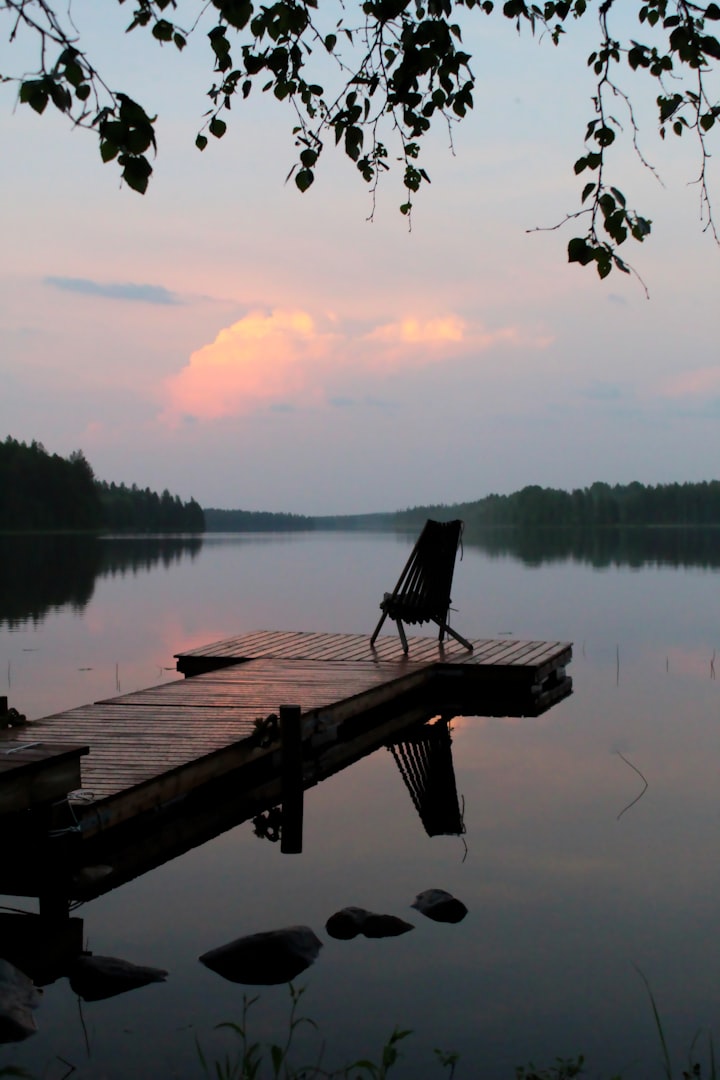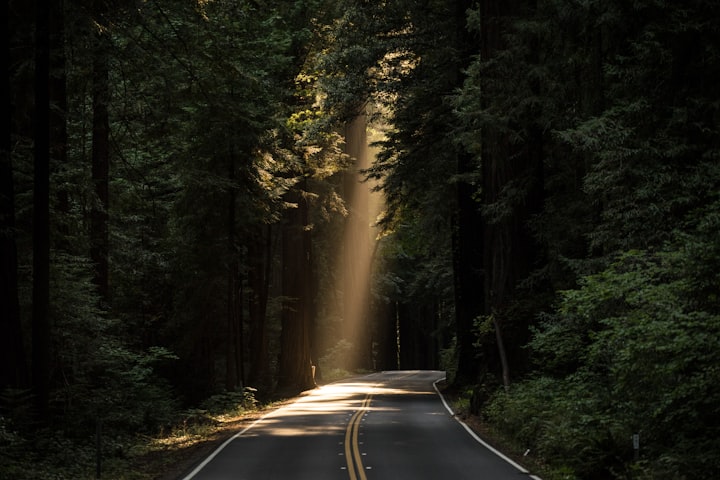On Emulating The Greats In Verse
They say that imitation is the sincerest form of flattery

One of the best ways to get started writing poetry, I find, is by studying the greats and trying to emulate them. This makes starting out a lot easier because you have the subject matter on hand. After many years of experience, I can tell you that one of the hardest jobs for any writer is staring at a blank page and not knowing quite how to begin. So it really is a very handy starter for ten as they say.
Here I present four poems that I was inspired to write by poems I studied many years ago at university. These poems are hardy annuals in English exams and ever greens in the whole cannon of English literature.
John Donne
The first poem was inspired by the metaphysical poet John Donne's 'The Sun Rising.' And since Beatle George Harrison followed his Abbey Road hit song 'Here Comes The Sun' with the later 'Here Comes The Moon', I didn't see why I couldn't follow up Donne's poetic rendering with Moaning at the Moon. Due to copyright law I cannot reproduce Donne's poem here, but it is more than worthwhile looking it up.
Moaning at the Moon
Stupid old fool
You loony moon
Why dost thou thus
Moon down on us?
With knowing wink
What dost thou think?
Go chase early burglars out on the prowl
The harvest mouse being eaten by the owl
Kids on the corner selling drugs
For gangs of teenage criminal thugs.
Is this the best that you can do
Shining down on just us two?
Mind your own business, stare elsewhere
Leer where you like, we just don't care.
All we're doing is having a kiss
Enjoying a moment of ecstatic bliss
What the hell do you think this is
A three ring circus in the dead of night
When all but us have taken flight?
How dare you look at us like that
You dirty old man, you nosey old gnat!
Doggin a young couple like us like that
Well go moon go, do what you like
Take thee for a walk, take thee for a hike
Just leave me alone to ride my bike!
D.J.Enright
Another great poet I very much admired was D.J.Enright, who wrote a charming poem called 'Blue Umbrellas.' I just loved the subject of how we tend to stifle creativity with formal education. By the way, we find the same subject treated exceptionally well in 'The Logical Song' by Supertramp. Go look up the Enright poem and you will see what I mean.
Well, in time I got married to a truly lovely Japanese woman whose attempts at English are often times challenged by her less than wide vocabulary, not unlike a young child in early life.
One day my wife wanted to tell me about thunder and lightning, but she didn't actually know those words, so she decided to make do and mend with "Darling, the clouds are shouting." And thus I was inspired to write 'Shouting Clouds.'
Shouting Clouds
"The clouds are shouting." I hear her say
As a dazzle of lightning flashes across The horizon.
"It's tewibbly fwightening at this time of day."
Her trembling voice stumbling across the bed that she lies on.
Who am I to tell her she's wrong with her noun
With a slap on the wrist and disapproving frown?
Who am I to chide her for her innocent ways
To call sneeze triggered mucous "Nose water sprays?"
Who am I to tell her that a gravy stain is not
What she likes to call "Mummy's little yummy spot"
Because her mind isn't trained in educated ways?
It matters not if it's "sprays" or if it's not
If it's a "shout" or even if it's "thunder"
In a gathering storm from far away yonder
Whatever you call it, just like her,
It's a natural born wonder.
Wilfred Owen
Another very interesting period of poetry was the First World War. For me among the well known war poets such as Rupert Brooke, Robert Graves and Wilfred Owen, it is the latter who interests me the most. And it is he, Wilfred Owen, that I once found myself attracted to the most, sufficiently inspired to want to emulate one of his better known poems, 'Strange Meeting.'
I do believe that my humble effort of the self same title bears worthwhile scrutiny and comparison with the original.
Strange Meeting
I deemed from the tunnel I had escaped, into the darkness, a crusader caped. Battered and bruised, scratched and scraped. A tawny owl looked down and gaped.
As I tore through bramble, bush and gorse, the thorny crown I wore looked worse, with blood and gore running down my face. But soon perchance, and with god's good grace, I saw a citadel on the far horizon.
Fixed in my sights, I kept my eyes on a troop of idle sentinels. Stood stiff still guard, at a wishing well in the war torn yard. A well full to crumbling with humbling dreams, tumbling from the mouths of injudicious teens.
And by the token of oaths unspoken, I tossed in my lot with brothers in arms broken, in the hope that we, newly awoken, would rise once again and feel no pain as we traversed the unforgiving terrain.
" Hail fellow well met, lest we forget." Said a voice I knew somehow not, yet….
Yet there was something about him I felt I knew, like the assailant from whom last night I flew, he seemed to know me, he knew me by smell and that is how I knew him as well. And at once I realised both were we in hell, not too far from where we fell.
Last night we died in vainglorious fight and our souls were lost to a futile night.
"Come, let us rest, it's what we deserve, fighting for the countries and fools we serve. Let us rest long, into the night. Our day is done, no more shall we fight."
And with that he was gone and I was alone, tired and afraid and far, far from home. I slept and I wept to the sound of a bell in some dingley dell they liked to call hell.
Welcome and goodbye to the war that made us all take flight and tore us all apart with terrifying fright. And now our lives are reduced to a long good night in a world of darkness without any light.
The Bard
Finally, there can be no greater literary giant to try to emulate than none other than William Shakespeare. I was almost immediately attracted to emulate the Bard's Sonnet 18, as it is perhaps best known.The sonnet is widely claimed to be about a man, and that gave me the idea to write my version about a man, that man being myself looking at myself in a mirror.I am in effect, talking out loud to myself with what is known as a poetic conceit.
Sonnet 18
Shall I Compare Thee To A Summer's Day
Or shall I compare thee to an August morn, in ragged clothes all faded and worn.
The leaves have fallen the branches are weak, an effect more galling as the mirror can't speak.
Sometimes the seasons are most unkind, playing tricks with thine heart and with thine mind.
And oft is the case that age makes us blind, to the ones that we love to whom that we bind.
By chance of age we become inclined, to lose all found to the grit and the grind.
Thrown asunder on unforgiving ground, accomp'nied by thunder, a furious sound.
So long as thoust breathe so long as thoust be, so long as I sing this song to thee
Thou shalst be what thou wants to be, it's a writer's poetic life for me. And thou shalst live on in the words that I write, to the end of all time, long into the night.
Please feel free to leave a comment about this article about any aspect of it you wish to address. Thank you for your kind attention.






Comments
There are no comments for this story
Be the first to respond and start the conversation.